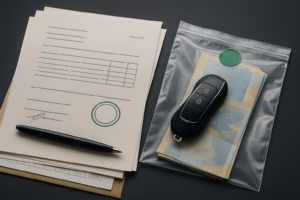In Brazil a company can be criminally prosecuted and even convicted for environmental crimes. What’s more: this can happen even without any specific director, partner, or employee being held personally liable.
This is one of the most controversial topics in environmental criminal law and has direct consequences for companies across all sectors. Million-dollar fines, suspension of activities, and irreparable reputational damage are just some of the risks a criminal case may bring. But how did we get here?
The Environmental Crimes Law and the Problems of Its Creation.
Brazil’s Environmental Crimes Law (Law No. 9,605/1998) was enacted in a context of strong international pressure for the country to tighten its environmental protection standards. The Federal Constitution of 1988 had already established, in Article 225, the need for criminal protection of the environment, and the new legislation sought to give effect to that mandate.
However, from its inception, the law faced severe criticism. Prominent scholars pointed out issues such as:
- Overlap between administrative infractions and crimes, leading to criminalization of conduct that could be resolved administratively;
- Poor legislative technique, with vague provisions open to subjective interpretations, undermining legal certainty;
- Introduction of corporate criminal liability without the Brazilian criminal procedure system being properly structured for it.
These initial flaws continue to affect how companies and executives are held liable today. A classic example of this overlap is the crime of operating with an expired environmental license, a topic we previously explored in detail in another article. In such cases, conduct that could be addressed administratively often results in criminal charges against companies and managers.
Corporate Criminal Liability.
One of the most innovative — and controversial — aspects of the Environmental Crimes Law was the introduction of criminal liability for legal entities. Article 225, §3, of the Brazilian Constitution had already authorized this possibility, and the law regulated it.
However, traditional criminal law is built on the concepts of purpose/knowledge (dolus) and negligence (culpa). How can these concepts apply to a company, which has no consciousness or will of its own?
Doctrine has been divided between supporters of this type of liability, who argue that holding companies accountable is essential for effective environmental protection, and critics, who warn of the risk of strict liability without proof of fault or intent, which violates fundamental principles of criminal law.
Regardless, corporate criminal liability is now consolidated and routinely applied by Brazilian courts. And not even cooperatives are exempt: recently, an agroindustrial cooperative in Paraná was convicted of an environmental crime related to air pollution, ordered to pay fines and fund environmental projects. This real case, reported by the Public Prosecutor’s Office, shows that liability is not limited to traditional private companies — see the full news release here.
Can a Company Be Convicted Alone?
For many years, Brazilian jurisprudence applied the “double imputation theory”, under which a company could only be indicted if an individual was prosecuted alongside it. The logic was simple: companies don’t act on their own.
This changed in 2013 with the judgment of Extraordinary Appeal No. 548.181 by the Brazilian Supreme Court (STF). The Court held that a company can be criminally prosecuted and convicted even without holding any director or employee liable.
The Court reasoned that the Constitution does not require this link, and that double imputation was hindering prosecution of companies that caused environmental damage. Since then, the Superior Court of Justice (STJ) and other courts have consolidated this understanding.
The problem is that this interpretation increases the risk of criminal liability without clear proof of intent or negligence, potentially leading to convictions without a defined nexus between the company’s actions and the crime.
What Does This Mean for Your Company?
In practice, the possibility of criminal liability for legal entities is a reality. This means any company can face prosecution for environmental offenses, with consequences such as:
- Hefty fines;
- Suspension or shutdown of operations;
- Loss of credibility and reputational damage.
Even seemingly minor formalities — such as an expired environmental license — can lead to criminal charges. We explained this risk in detail in another blog post.
And if a company is already under investigation, it is crucial to assess the possibility of strategic solutions such as plea agreements or negotiated settlements, which can terminate proceedings before conviction. We explored these alternatives in this article.
In any case, prevention is key. Companies should adopt measures such as:
- Implementing environmental compliance programs;
- Creating internal monitoring and control mechanisms;
- Retaining specialized legal counsel for prevention and defense in environmental criminal cases.
Conclusion
Corporate criminal liability is one of the greatest challenges in Brazilian environmental criminal law. Although consolidated by the courts, it continues to raise significant debates on its limits and its impact on legal certainty.
The fact is: your company can indeed be convicted of environmental crimes — even in isolation, without prosecution of managers. And as we’ve seen, not even cooperatives are immune to this risk.
We have shown in previous posts that even formal infractions, such as an expired environmental license, can bring criminal charges. In another article, we explained when it may be possible to end a criminal case through agreements with the Public Prosecutor’s Office.
These examples make it clear: prevention is always the best path. Investing in compliance, documentation management, and internal controls is far less costly than facing a criminal investigation or conviction.
But if your company is already under investigation or charged with an environmental crime, it is essential to rely on a strategic legal defense, capable of evaluating whether the best course lies in judicial contestation or in negotiation. In environmental criminal law, improvisation is costly — the difference between loss and solution lies in having a defense prepared to deal with the complexity of the matter.




